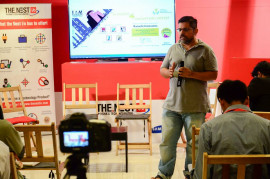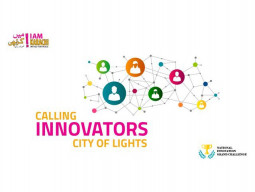
Indeed, the growth of the tech start-up culture is promising, and transparency in governance is a step in the right direction, but if our definition of innovation is suffering from severe myopia, our ability to change things will be just as limited as the definition itself. Our inability to appreciate and acknowledge innovation in social and the financial sectors, in it being inclusive of new ideas and approaches from the humanities and social sciences, is creating a limited vision for the future that is both extremely constrained in its scope and far from sustainable. Whether it is strong arguments in favour of humanities and the social sciences for an inclusive, tolerant and understanding society, the well-founded arguments against the Higher Education Commission’s treatment of scholars outside natural and physical sciences, or the problems in the social sector that cannot be solved by just another app, our failure to recognise, respect and reward innovative thoughts and ideas is creating high barriers to our own development. For this one, it is hard to pin the blame on a foreign NGO or our eastward neighbours.
Our myopic definition of innovation is not only ostracising those who are outside the folds of engineering and the sciences, it is also affecting our ability to engage in policy debates in the international arena. The recent European Union meeting on innovation policy for economic and social impact, held in Helsinki last week, had exactly zero representation of scholars or researchers working in Pakistan, though both our northern and eastern neighbours, along with researchers from countries across the globe, were well represented. As I inquired further about the lack of Pakistani representation, I was told that the only interest from Pakistani colleagues was on technology and IT innovation, with little interest in innovation policy, social innovation or debates on inclusive innovation. The loss was certainly ours, where, not only did we not benefit from the richness of the debates, but we also lost out on the opportunity to learn from others who may have used the vehicles of innovation and innovation policy, to address social, economic and developmental challenges.
Now, we have two options, we can either dismiss this as a giant conspiracy against us, like we often do, or we can recognise this as a major weakness in our intellectual landscape, and do something to change it. Our current fixation with innovation as the domain of a single group within society shows that we are more interested in exclusion than inclusion, a trait not too unfamiliar in the domains of other social and political problems.
The fabric of our society, and the brilliant minds within its folds, is rich and diverse, in culture, training and knowledge. The problems faced by the nation are equally diverse in their evolution and scope. It is only fitting that our innovative ideas, to solve these problems, embrace the same diversity of origin and scholarship.
Published in The Express Tribune, June 16th, 2015.
Like Opinion & Editorial on Facebook, follow @ETOpEd on Twitter to receive all updates on all our daily pieces.












































COMMENTS (3)
Comments are moderated and generally will be posted if they are on-topic and not abusive.
For more information, please see our Comments FAQ